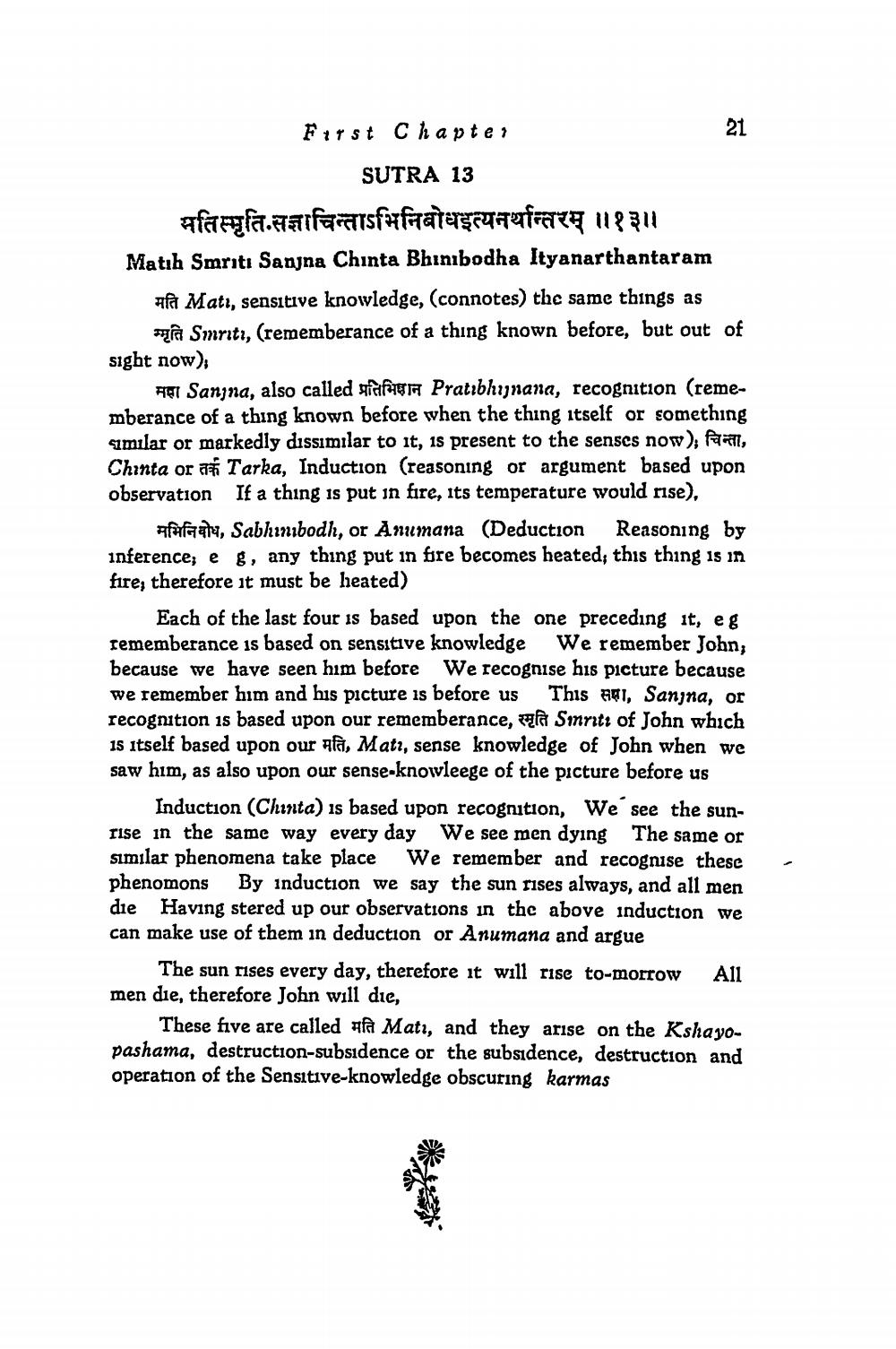________________
First Chapter
SUTRA 13 मतिस्मृति.सज्ञाचिन्ताऽभिनिबोधइत्यनर्थान्तरम् ॥१३॥ Matıh Smriti Sanjna Chinta Bhınıbodha Ityanarthantaram
afa Mati, sensitive knowledge, (connotes) the same things as
Fa Smriti, (rememberance of a thing known before, but out of sight now),
Sanjna, also called siden Pratibhijnana, recognition (rememberance of a thing known before when the thing itself or something similar or markedly dissimilar to it, is present to the senses now); Paral, Chinta or a Tarka, Induction (reasoning or argument based upon observation If a thing is put in fire, Its temperature would rise),
Afifalate, Sabhınıbodh, or Anumana (Deduction Reasoning by inference, e g, any thing put in fre becomes heated, this thing is in fire, therefore it must be heated)
Each of the last four is based upon the one preceding it, eg rememberance is based on sensitive knowledge We remember John, because we have seen him before We recognise his picture because we remember him and his picture is before us This Ful, Sanjna, or recognition is based upon our rememberance, la Smritt of John which 1s itself based upon our afà, Matr, sense knowledge of John when we saw him, as also upon our sense-knowleege of the picture before us
Induction (Chinta) is based upon recognition, We see the sunrise in the same way every day We see men dying The same or similar phenomena take place We remember and recognise these phenomons By induction we say the sun rises always, and all men die Having stered up our observations in the above induction we can make use of them in deduction or Anumana and argue
The sun rises every day, therefore it will rise to-morrow All men die, therefore John will die,
These five are called na Mati, and they arise on the Kshayopashama, destruction-subsidence or the subsidence, destruction and operation of the Sensitive-knowledge obscuring karmas




